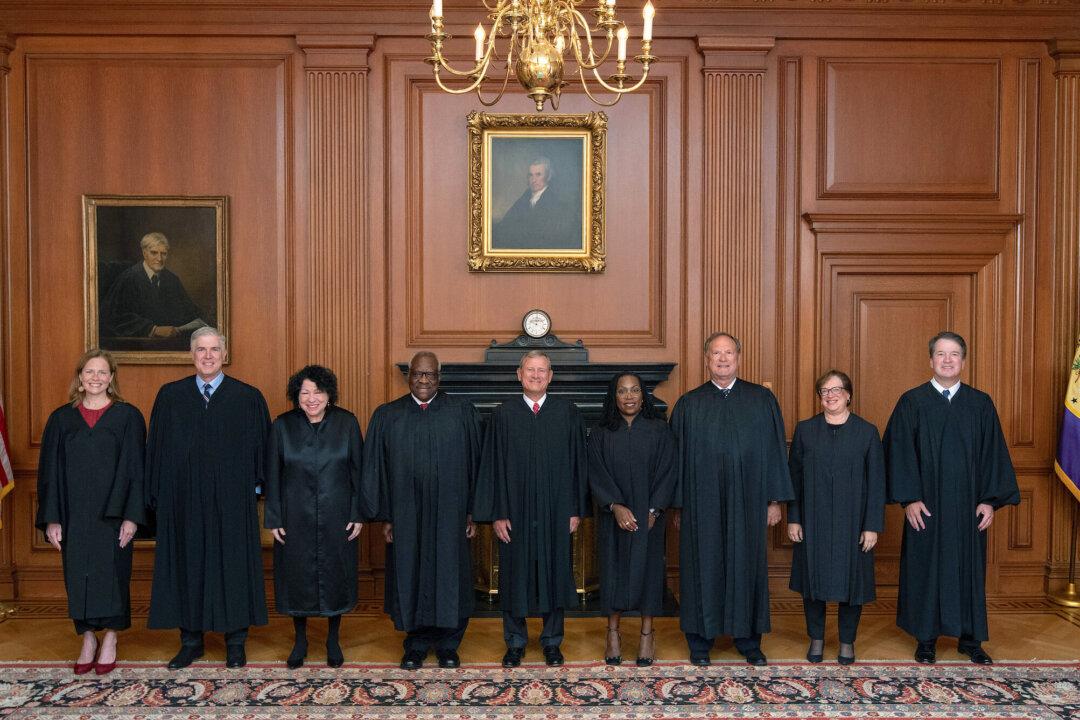A majority of Supreme Court justices halted a lower court’s order on April 21 that blocked access to an abortion drug, but Justices Samuel Alito and Clarence Thomas dissented.
Alito wrote a four-page dissent and explained why he would allow partial restrictions on the drug mifepristone, after the Biden administration appealed a ruling against a Texas district judge who ruled to overturn the Food and Drug Administration’s (FDA’s) approval of the pill.





